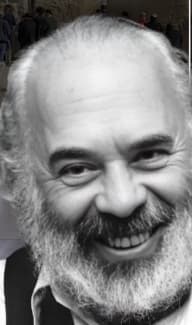On his 30th yahrtzeit
The (very ) uncomfortable truth about Shlomo Carlebach's legacy
We need to talk about this, because ignoring the truth isn't going to make it go away.

As hundreds gather to sing at Rabbi Shlomo Carlebach's grave on his 30th yahrzeit, we need to have an honest conversation about how we memorialize complicated figures in Jewish history.
Known as the "Singing Rabbi," Carlebach revolutionized Jewish music and touched countless souls. His melodies continue to fill synagogues worldwide, and his impact on modern Jewish spirituality is undeniable. But there's another side to this story that many prefer to ignore.
Multiple women have come forward with credible allegations of sexual misconduct spanning decades. These accusations didn't emerge from a vacuum - they represent a pattern of behavior that was, according to numerous sources, an open secret in certain communities.
Yet today, we continue to separate the art from the artist as if these two realities don't coexist. We sing his niggunim at weddings, in services, and at graves, while whispering "but did you hear..." in private conversations.
The question isn't whether to erase Carlebach's music - it's too deeply woven into the fabric of modern Jewish life.
Do we have to discard his magnificent niggunim because he was a very imperfect person? Can we sing his melodies while also honoring the truth? Can we teach our children about complex legacies without whitewashing history?
As we mark this yahrzeit, it's time to model how we, as a community can hold multiple truths: that beautiful art can come from flawed people, that spiritual leadership doesn't equate to moral perfection, and that honoring victims doesn't require erasing contributions.
The most Jewish thing we can do is wrestle with this complexity, rather than pretend it doesn't exist.